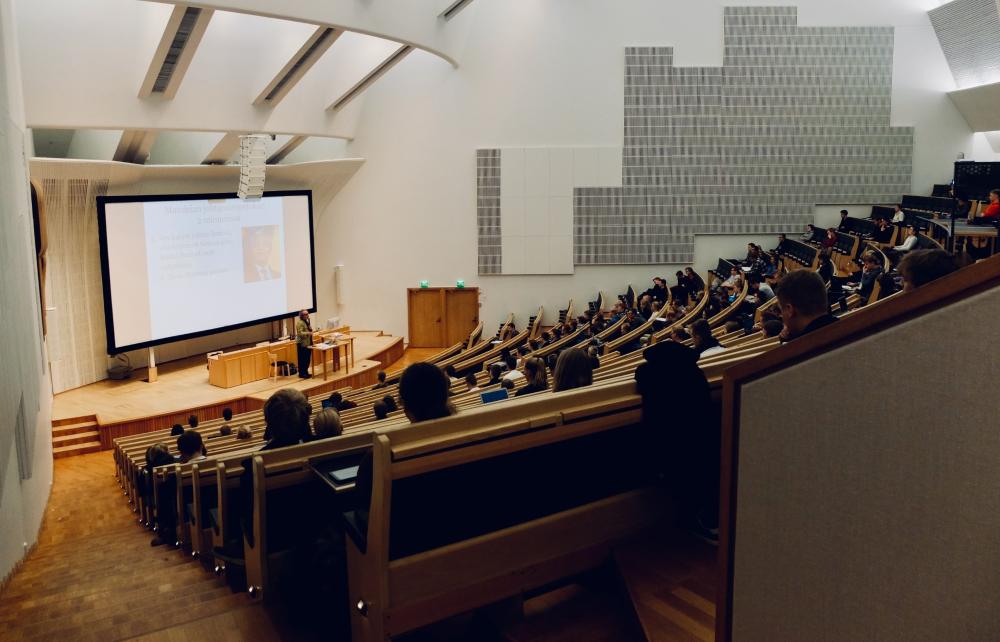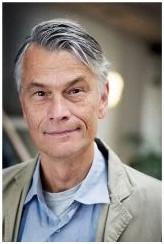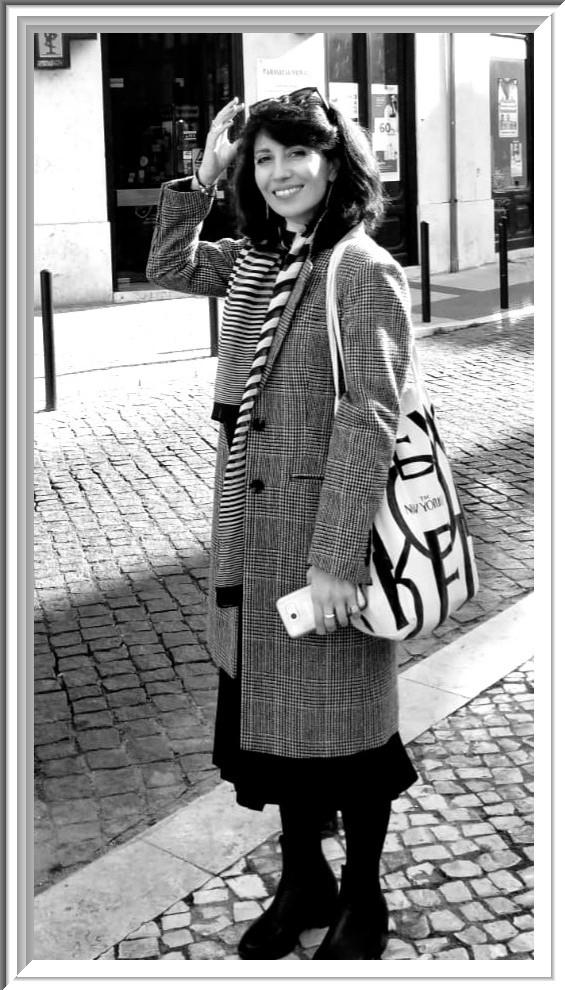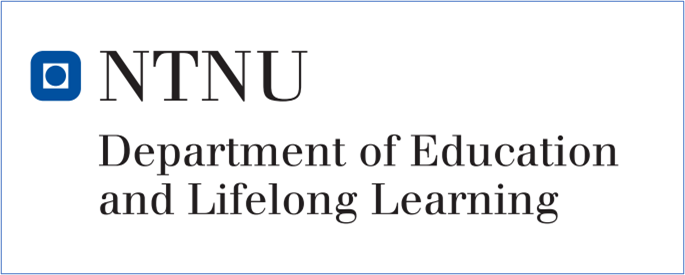Conference - Department of Education and Lifelong Learning
Conference: The meaning of higher education?
Venue: Dragvoll campus
Date: 9 June 2023
Organisers: The Educational Development Unit (Norwegian web page)
Conference fee: free

Conference theme and format
Theme
Theme
Like any other field within the educational domain, higher education (HE) is a contested field, theoretically, politically, economically and as everyday practice. HE institutions, such as the university, create spaces for people engaging in research, education, knowledge development, bringing together people working as students, teachers, researchers, administrators, leaders, technicians, … Life goes on in and across HE institutions. But universities are also bureaucratic and controlled societal organizations, with contested purposes across a precarious world.
It appears that the main purpose of higher education today is to solve the problems of our time, of history and of the future. If there is any hold in this claim, it is meaningful to ask who defines the problems to be solved, and on what grounds? And further, if we are solving any problems or creating (meaningless) systems of 'appearance'? The predominant call for 'employability' from higher education programs and for 'applicability of research, raises questions about the fundamental purposes of education and research – not only the conceptual phrasing of what the purposes are, but for whom and for what. How can the wider purposes of HE in relation to the constitution of democratic societies and individuals’ self-formation be nurtured under the increased demand for accountability? Whose interests are we serving in our work in and throughout HE?
In our quest to be purposeful in the ways that count and are counted, useful and effective, we seldom have time to come together to reflect upon what is or could be meaningful in our everyday work in higher education. This year's IPL-conference is aiming for critical and caring discussions that creates room for different voices and different understandings of what is or could be meaningful in higher education. Underlying is a notion of the meaningful being at stake.
Call for contributions
Call for contributions
We would like this to be a day of discussions and co-creation rather than performance, and therefore omit the usual paper presentation parallels-format. In this call for contributions, we invite you to write short online texts, based on the question What is meaningful in higher education?
The texts can be of different genres, such as thinking pieces, narratives and reflections on experiences, conceptual work as well short abstracts from research work. We welcome contributions from all people taking part in and across higher education – both academic and administrative staff, students, leaders … and more. We especially encourage students to submit contributions in the form of thinking pieces and narratives.
Format
Format
We would like this to be a day of discussions and co-creation rather than performance, and therefore omit the usual paper presentation parallels-format. We collect short online "task card"-submissions from the participants before the conference, based on the question What is meaningful in higher education?
The first keynote by Associate Professor Fadia Dakka (Birmingham City University / NTNU) will offer critical perspectives on co-creation and togetherness in the university. Dakka will guide us in creating a rhythm of moments of possibility to connect in meaningful ways during the conference. The participants engage in an ongoing co-creative process during the day.
The second keynote from Professor Mats Alvesson (Lund University) offers perspectives on the meaningful – and meaningless – in higher education. These perspectives will contribute to a constructive break to initiate further discussions in groups and in plenary.
Programme
Preliminary programme
| 09:00 | Welcome and opening |
| Keynote 1 – Fadia Dakka | |
| Workshops in groups | |
| 11:45 | Lunch together |
| 12:30 | Welcome back |
| Keynote 2 – Mats Alvesson: The meaning and meaninglessness of higher education | |
| Further workshops in groups | |
| Plenary discussions | |
| 15:30 | Re-flection and pre-flection at the end of the day by Fadia Dakka and Mats Alvesson |
Keynote speakers

A few of Mats Alvesson's recent books include Return to Meaning (Oxford University Press 2017), Reflexive Leadership (Sage, 2017, with Martin Blom and Stefan Sveningsson),The Stupidity Paradox (Profile 2016, with André Spicer), Managerial Lives (Cambridge univ Press 2016, with Stefan Sveningsson), Changing organizational culture (Routledge 2015 2nd ed, with Stefan Sveningsson), The Triumph of Emptiness (Oxford University Press 2013) and Qualitative Research and Theory Development (Sage 2011, with Dan Kärreman)

A few of Fadia Dakka's recent publications include
‘Postgraduate Research in a Sick Society’, Special Issue ‘Sociological perspectives on the mental health and wellbeing agenda in education’, Research Papers in Education (forthcoming 2023, with A. Wade), Editorial Perspective – An Ethics of Rhythm for the Activist ‘ in Academic Activism in the 21st Century: Challenges and Opportunities’, Special Issue PTHE (special issue PTHE 2022, with C. Boehm and L. Morini), 'Rhythm and the Possible: Moments, Anticipation and Dwelling in the Contemporary University’, in Inquiring into Academic Timescapes (Emerald publishing 2021, Filip Vostal ed.), ‘Competition, innovation and diversity in higher education: dominant discourses, paradoxes and resistance’, (British Journal of Sociology of Education, 2019), ‘Differentiation without Diversity. The political economy of higher education transformation’ (Chapter 18), in The Palgrave International Handbook of Higher Education Policy and Governance. (Palgrave MacMillan 2015, J. Huisman, H. de Boer, D. Dill eds.)
Organisers
-
Martha Torgeirdatter Dahl Universitetslektor i universitetspedagogikk
73559145 +4791525693 martha.t.dahl@ntnu.no Institutt for pedagogikk og livslang læring -
Dagrun Astrid Aarø Engen Førsteamanuensis - Universitetspedagogikk
73590420 +4791799272 dagrun.engen@ntnu.no Institutt for pedagogikk og livslang læring -
Espen Hektoen Førsteamanuensis
+4799501941 espen.hektoen@ntnu.no Institutt for pedagogikk og livslang læring -
Marit Honerød Hoveid Professor i pedagogikk
73591945 marit.hoveid@ntnu.no Institutt for pedagogikk og livslang læring -
Marte Therese Jakobsen Universitetslektor
73559434 +4748102883 marte.t.jakobsen@ntnu.no Institutt for pedagogikk og livslang læring -
Patric Wallin Professor
+4792097119 patric.wallin@ntnu.no Institutt for pedagogikk og livslang læring

Tidligere IPL-konferanser
- 2022: Kritisk forskning og kunnskapsproduksjon
- 2021: Body, Materiality, Learning
- 2020: Konferansen ble utsatt til 2021 på grunn av pandemien
- 2019: Quality = equality? Qualities, differences and social justice
- 2018: Nye læringshorisonter – digital og hybrid pedagogikk
- 2017: Relasjoner i ord og handling
- 2016: Dialoger i praksis – makt, bærekraft og fornyelse
- 2015: Kompetanse og karriere – utfordringer og muligheter i et livslangt perspektiv
- 2014: Innovasjon, samskaping og erfaringsdeling på arbeidsplassen
